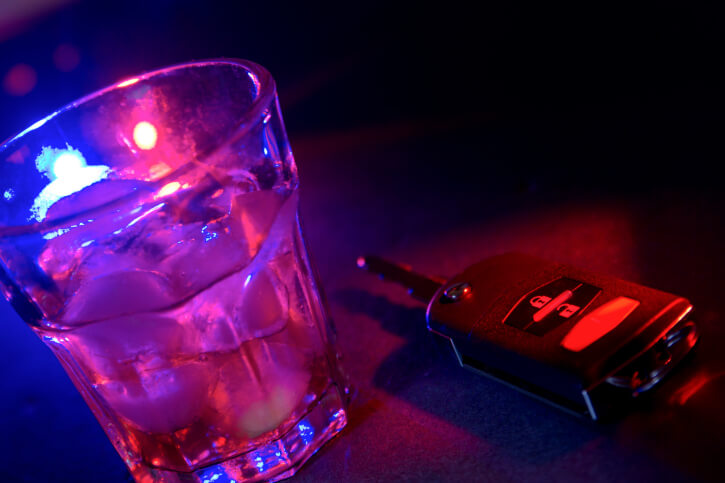
Stopped for DUI in North Carolina: 6 Things to Know
Lawmakers in North Carolina handle DWI penalties a little differently than everyone else in the country. In an attempt to dole out punishment that is more specific to each specific situation, there are six different levels, based on factors such as blood alcohol concentration (BAC), driving record and other aggravating and mitigating factors, that an offender can be slotted into. The six levels are similar to separate punishments for first and subsequent convictions in other states. The worst-case scenario for a driver is an aggravated Level 1 sentence, which could mean up to two years in jail and a $4,000 fine. On the other side, a Level 5 sentence indicates no aggravating factors. A Level 5 offender can expect a minimum of 24 hours and a maximum of 60 days in jail, a fine of up to $200 and a driver’s license suspension of up to 30 days.
If you are stopped for a DWI in North Carolina, here are six things you should know:
1. Implied consent and sobriety testing
If a law enforcement officer in North Carolina has probable cause to suspect a driver is impaired, the state’s Implied Consent Law requires that the driver consent to a chemical test to determine BAC. The chemical test of blood, urine or breath is the one conducted at a police station or hospital after the driver has been arrested for suspicion of DWI. Another common test requested by police is a field sobriety test. This is conducted in the field and involves the driver following instructions to perform simple physical activities such as walking a straight line or standing on one leg. Field sobriety tests are not covered by the consent law and criminal defense attorneys recommend that drivers politely decline to submit to this test. There is no penalty for refusing this request in North Carolina.
2. Refusing the chemical test
Under North Carolina law, refusal to take the chemical test is punishable by a six-month driver’s license suspension. That’s in addition to any suspension or additional penalty in the criminal case. If the refusal was your second in a five-year period, the penalty is a two-year suspension. Even though state officials won’t have a BAC reading to introduce when a driver refuses the chemical test, it’s still possible to get a DWI conviction based on the testimony of the police officer and the decision by the driver to refuse the chemical test – prosecutors will argue the refusal indicates the driver knew he or she was impaired.
3. You may be on video
One way that prosecutors can collect evidence in a DWI case is with the police video of the stop. It is increasingly common for DWI stops to be filmed, and criminal defense attorneys say drivers should assume that is the case. The smartest course of action is to say and do as little as possible. Provide proof of insurance and the vehicle registration, but it’s OK to politely decline to engage in conversation with the officer. Get out of the vehicle if requested, but a driver does not have to consent to a search of the vehicle. The goal is not to say or do anything that could appear on a video as the actions of someone who is impaired.
4. More than .08 to worry about
Lawmakers in the state have imposed a zero tolerance when it comes to drinking and driving for drivers under the age of 21. Any BAC reading at all can lead to a DWI arrest. The legal limit is slightly higher for commercial drivers at .04 BAC and is .08 BAC for the rest of the state’s adult drivers.
5. DUI penalties in North Carolina
A first offender without any aggravating factors would qualify for a Level 5 sentence. In addition to the 30-day suspension and a fine of up to $200 is mandatory substance abuse assessment. In most cases, the minimum 24 hours in jail is deferred in favor of community service. The penalties are stiffer for lower penalty levels. A driver who qualifies for a Level 3 penalty must have no “grossly aggravating” factors involved in the arrest. But overall, the aggravating factors must “substantially” outweigh any mitigating factors. The penalty is a minimum of 3 days in jail up to a maximum of 6 months, a fine of up to $1,000 and a 30-day driver’s license suspension.
6. Total cost of a DUI in North Carolina
Even a first DWI conviction with no aggravating factors will cost thousands of dollars. That includes $100 for a DUI assessment, $160 to sign up for Alcohol and Drug Education Traffic School, a fine of up to $200, along with $190 in court costs, and $300 in fees for license restoration, the right to drive before the trial and the right to drive after the conviction. Legal fees will depend on the complexity of the case and experience of the attorney, but should generally range from $1,500 to $7,500 for a first offense. The cost for car insurance could increase by up to threefold, costing an additional $1,000 to $2,000 a year for at least three years.
This article is for informational purposes only. If you need legal advice, you should consult an attorney.